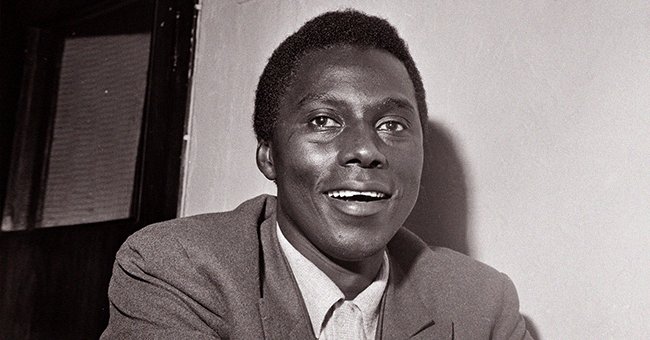
Johnny Sekka AKA Thelma's Fiancé in 'Good Times' Illegally Left His Country as a Teen after Difficult Childhood
Despite previous difficulties faced by Black actors in the movie industry, Gambian actor Johnny Sekka fought his way through. Meet the actor who ran away from his country to carve out a life for himself.
Johnny Sekka was a Gambian actor who memorably became known as Thelma's African fiancé, Ibe Wubila, in the 1974 drama series, "Good Times."
While many fans fell in love with the actor's on-screen roles, they were unaware of the actor's tough childhood and tremendous sacrifices to succeed. Let's take a glimpse into the difficult life of Sekka before his glorious days.
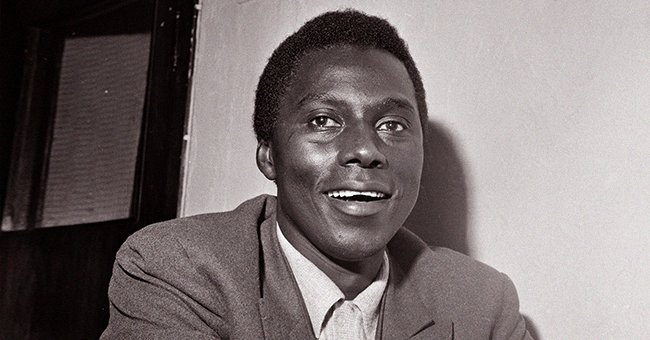
Monochrome photo of actor Johnny Sekka. | Photo: Getty Images
SEKKA'S ROLE ON "GOOD TIMES"
Johnny Sekka was born as Lamine Sekka on July 21, 1934, in Dakar, Senegal, to a Gambian father and Senegalese mother. He worked very hard to amass fame and fortune in his career, and many witnessed his talent in movies like "Babylon 5" and "The Avengers."
Although Sekka appeared in several films, his role in "Good Times" catapulted him into fame. He starred as the fiance to Thelma, played by BernNadette Stanis. Thelma meets Wuliba, who is an exchange student, and the pair begins a relationship.
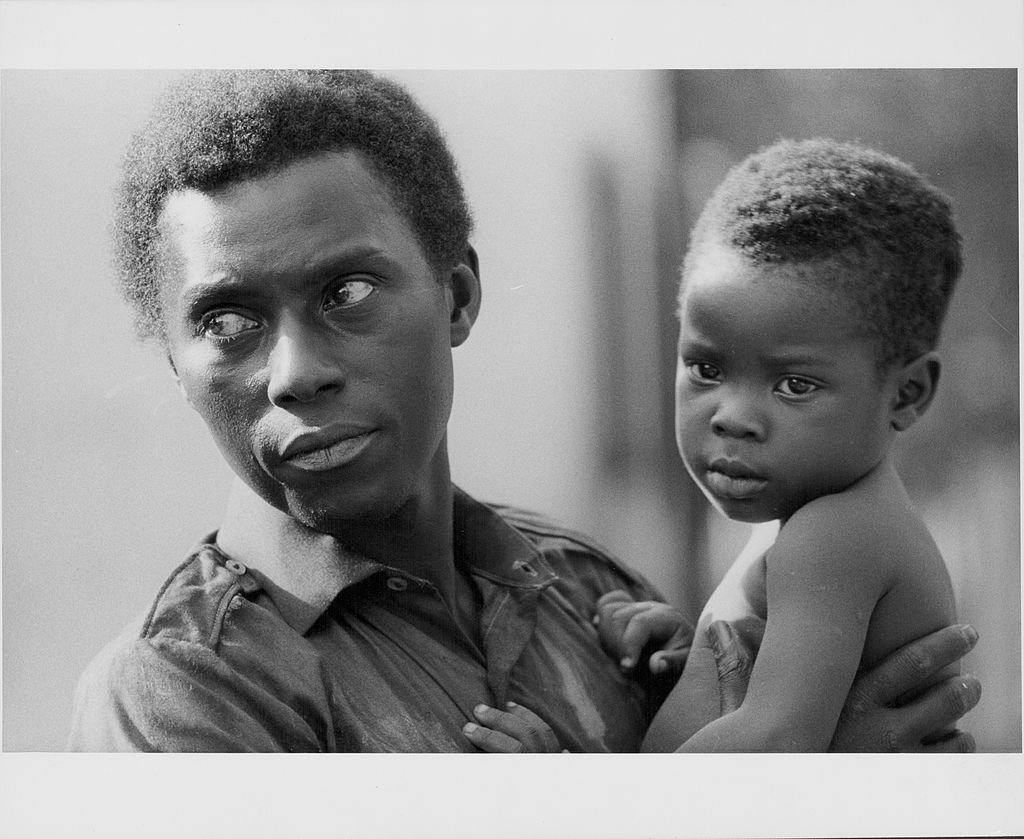
Actor Johnny Sekka in a scene from the film 'Things Fall Apart', or 'Bullfrog in the Sun', 1971. | Photo: Getty Images
Not long after, Wuliba requests that Thelma move into his place. However, when she plans to move in with her man, her mother, Florida, vehemently refuses.
With no other options left, Wuliba asks Thelma to marry him and move to Nigeria with him. She's left heartbroken after she accepts and finds out that he believes in polygamy.
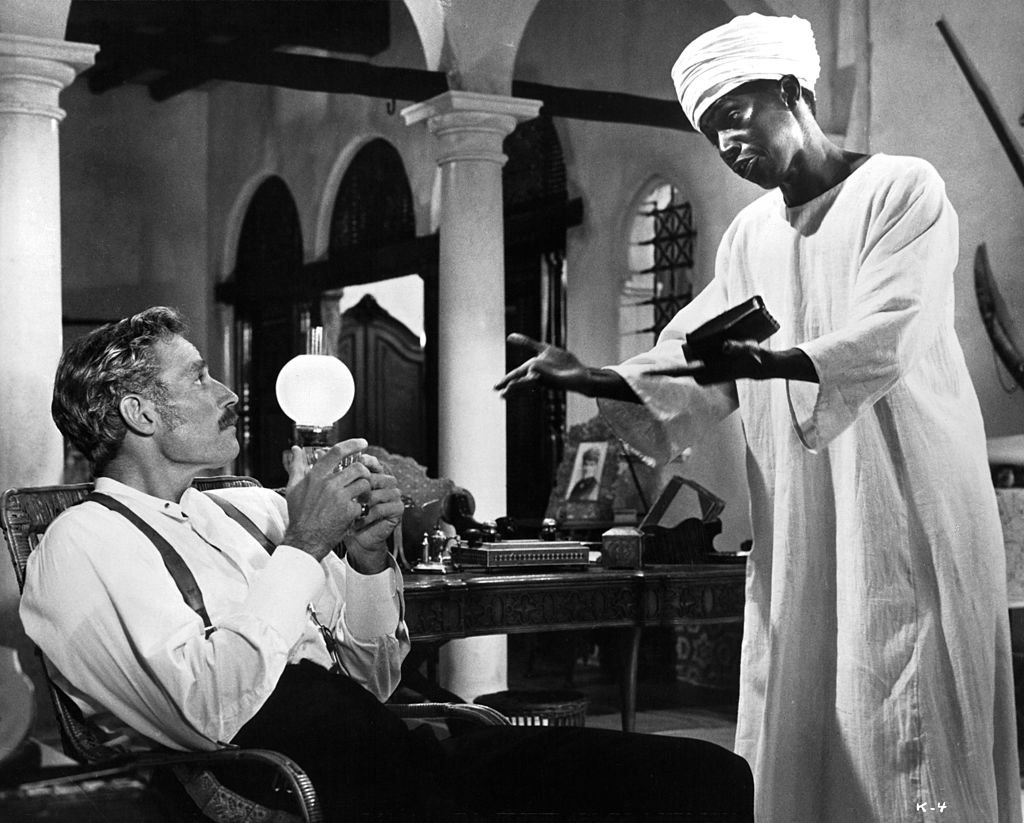
Charlton Heston sitting in a chair looking up at Johnny Sekka who is wearing a turban wrapped around his head in a scene from the film 'Khartoum', 1966. | Photo: Getty Images
LIFE BEFORE THE "GOOD TIMES"
Significant roles for black actors used to be few and far between in the movie industry. However, times have since changed, as more and more actors of color shine in impactful, leading roles.
Sekka made a name for himself in those times as a black actor. To achieve success, he had to work hard, even if it meant resorting to illegal means.
At a very young age, Sekka lost his father, and he had to move to Gambia to live with an aunt. The actor's life was laced with several difficult moments, and he struggled to survive. He eventually ran away from his aunt's home to the country's capital at the time.
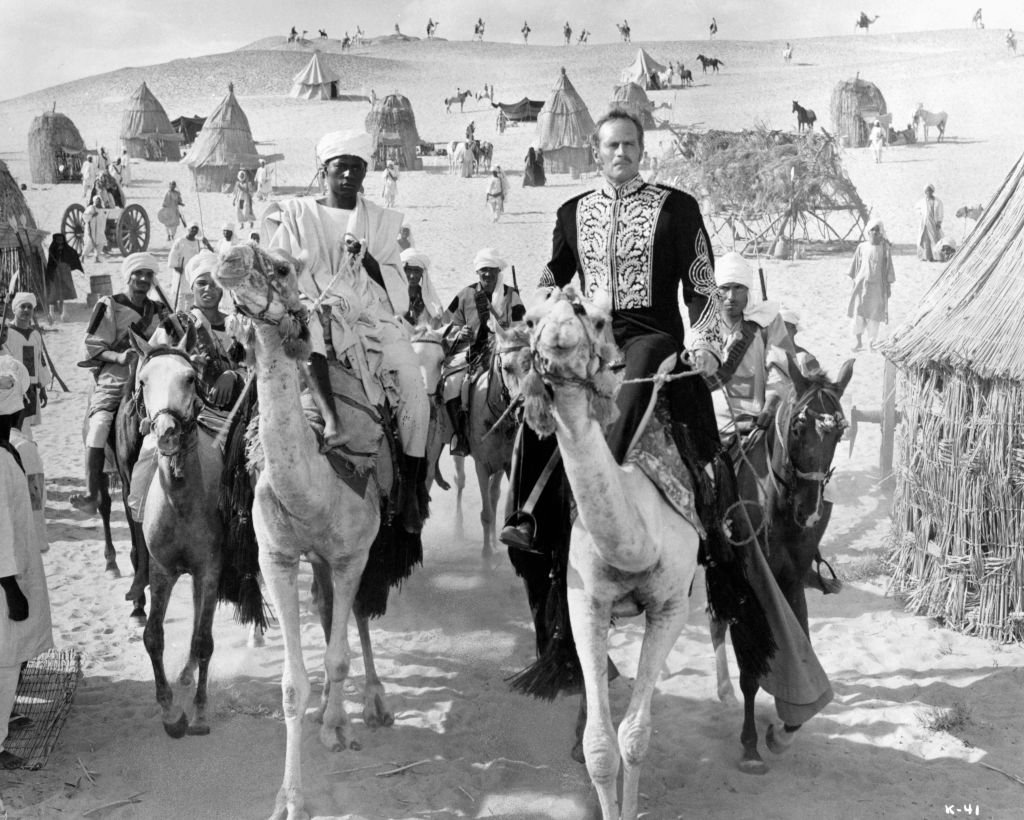
Charlton Heston and Johnny Sekka riding a camel with a group of men behind him riding horseback in a scene from the film 'Khartoum', 1966. | Photo: Getty Images
There, Sekka took odd jobs to fend for himself while he lived alone. All attempts by his uncle to put him back in school proved futile, as the actor was bent on working. Not long after, Sekka began working in the US military as an interpreter and continued self-education.
Before he clocked 20, Sekka stowed away on a ship to Marseille and ended up in Paris. In France, the icon spent three years discovering the left bank (a district in Paris) and working in a Senegalese restaurant.
He noted that in plays about colorism, the Black actors were always asked to portray a racial symbol and not a character.
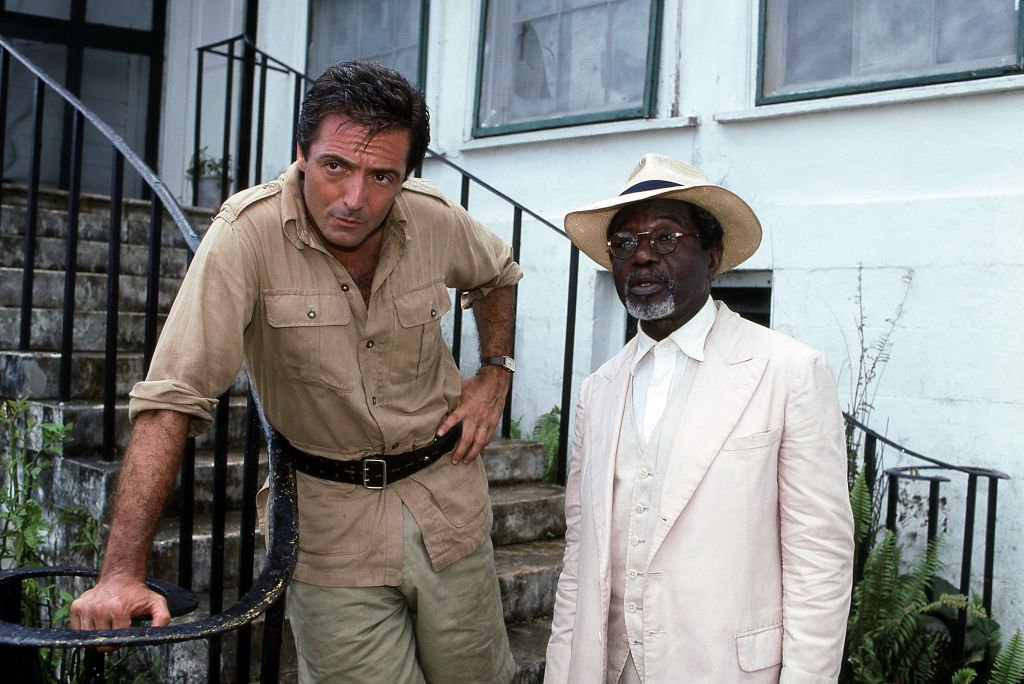
Armand Assante and Johnny Sekka in a promotional photo for 'Passion and Paradise' circa 1988. | Photo: Getty Images
SEKKA'S LIFE IN EUROPE
Sekka did not remain in France for long. In the early 1950s, he moved to London, England, and joined the Royal Air Force. The star served in the RAF for a short time before meeting West Indian actor Earl Cameron, who encouraged him to get involved in the theatrical profession.
Sekka heeded, and in 1959, he got his first role in the stage version of the novel, "Mister Johnson." In 1961, he landed a role as a student in his first film, "Flame In The Streets." The film was the screen version of Ted Wills' "Hot Summer Night," After it aired, he gave his reactions to the play.
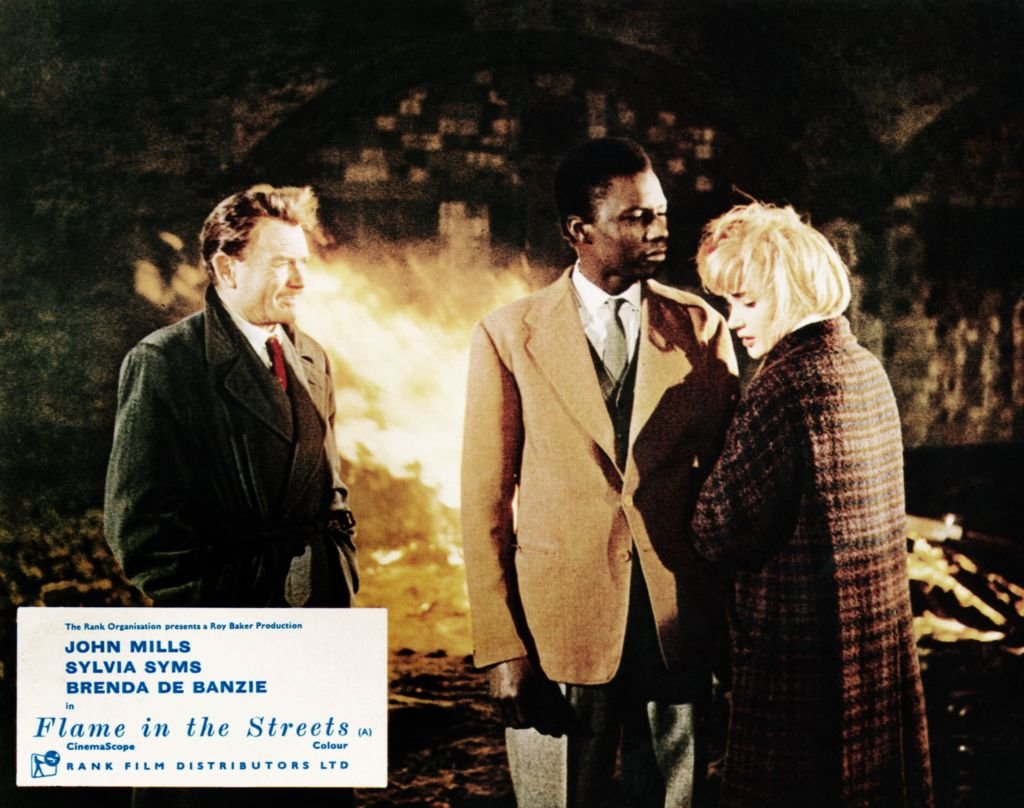
John Mills, Johnny Sekka and Sylvia Syms on a set of Flames In The Street circa 1961. | Photo: Getty Images
Wills said he was proud of the play because it was the first West End production to deal with racism. The play featured scenes where whites and blacks kissed, and even though it caused an uproar, the reviews were great.
After his role on "Flame In The Streets," Sekka also appeared in the movie "Mohammed: Messenger of God" as Bilal. Speaking about his role, Sekka said he would have turned it down if it went against what he held sacred.
Overall, Sekka has also made his thoughts about racism, even in his movies. He noted that in plays about colorism, the Black actors were always asked to portray a racial symbol and not a character.
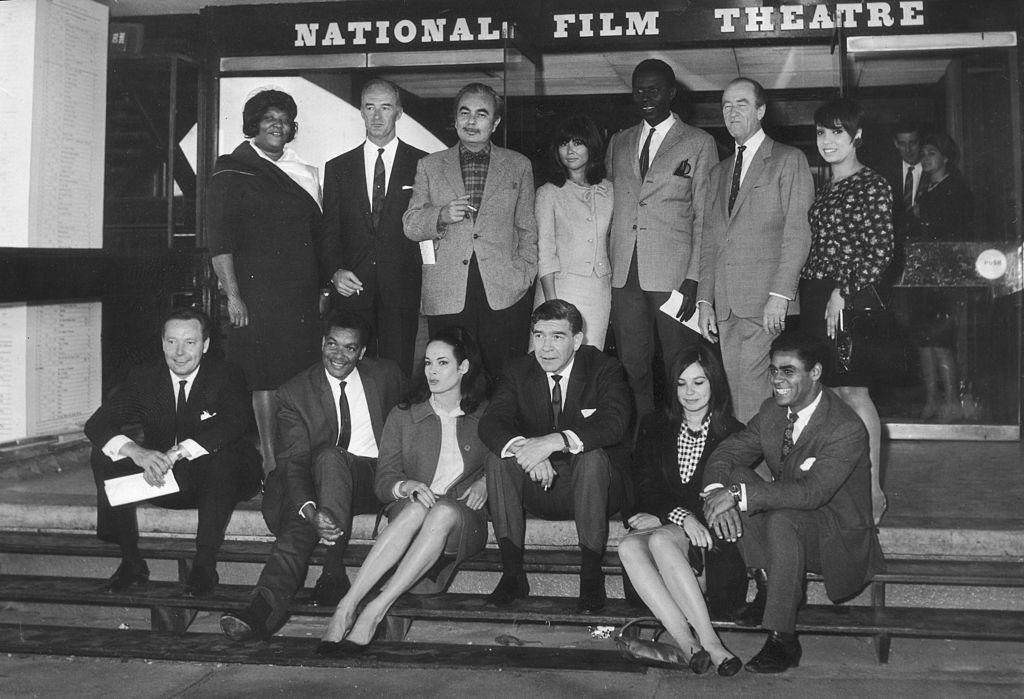
A line-up of international thespians including Johnny Sekka at the National Film Theatre in London, during a press preview of the Commonwealth Film Festival on 12th September 1965. | Photo: Getty Images
He spoke candidly about the lack of voice of Black actors in the British drama. He noted that if someone were loved, the race would never be a bone of contention. Finally, Sekka said he was tired of talking about the color subject.
LIFE OUTSIDE ACTING
Sekka was not only focused on building his career, but he also paid attention to his personal life. Before his demise, he was married to Cecelia Enger, and they had one son, Lamine. Sadly, Sekka passed away on September 14, 2006, in California. He was aged 72.
